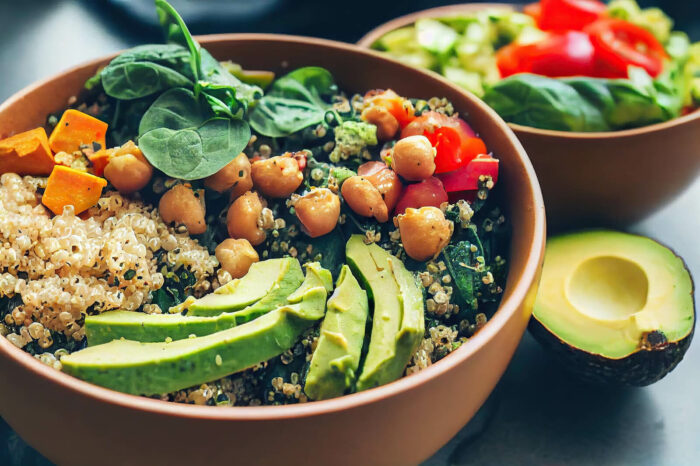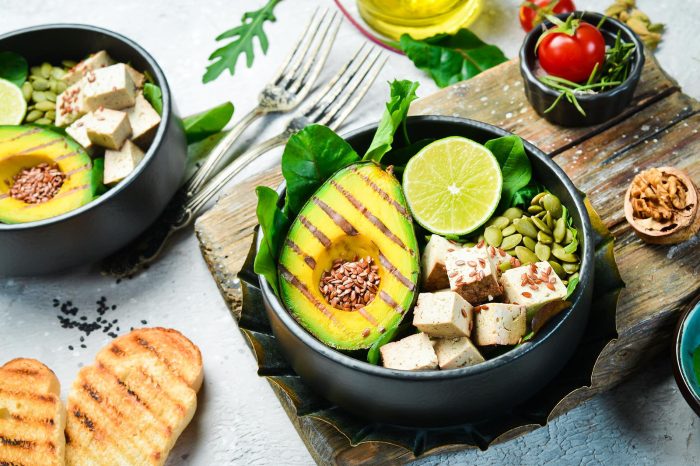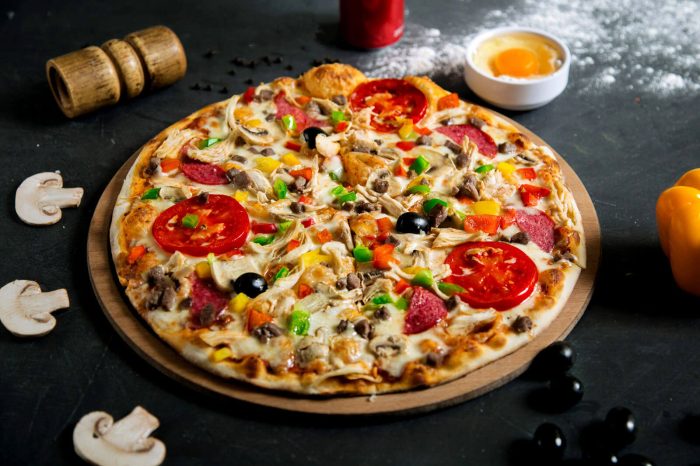Is Vegan Gluten-Free? – Everything You Need to Know
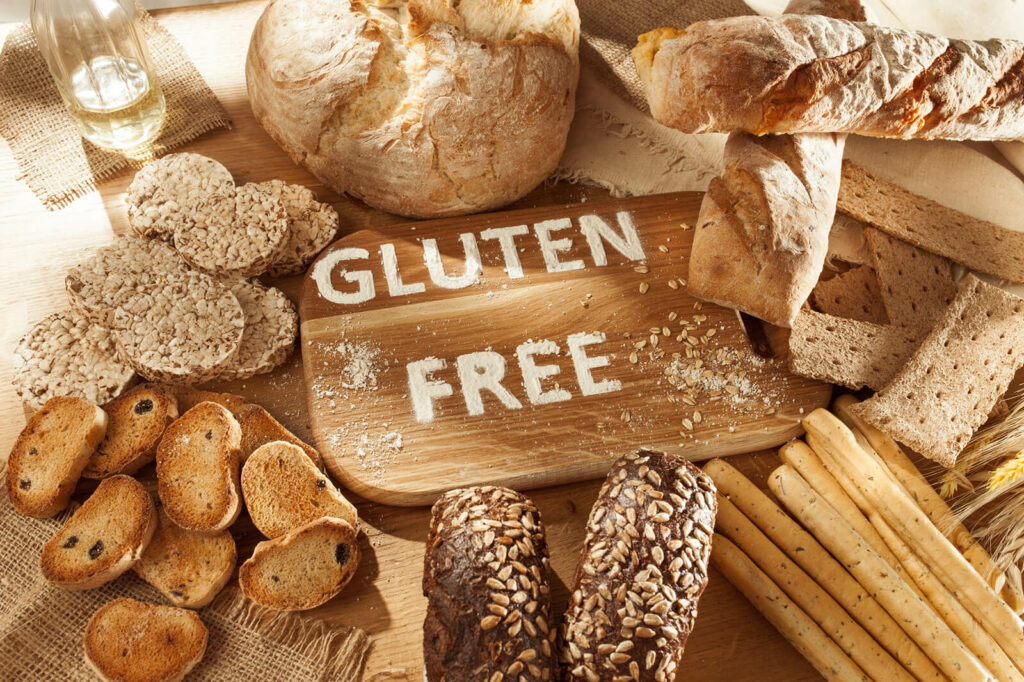
Are you looking to make a switch to a vegan diet? If you’re recently vegan or gluten free, it can be difficult to navigate the world of nutrition and food labels. Is vegan gluten-free and are all vegan products gluten free? Is veganism suitable for those who are on a strict gluten-free diet? We answer these questions and more in this blog post! Finding out whether or not a certain food is safe for one’s dietary needs can be touch sometimes but we’re here to make things easier by taking an in-depth look into the connection between being both, vegan and gluten-free.
Does Vegan Mean Gluten-Free?
No, vegan does not automatically mean gluten free. Vegan refers to food that does not contain animal products such as meat, dairy, eggs or honey. On the other hand, gluten-free food must be free from wheat, barley and rye, amongst other grains. This means that vegan food can still contain some form of grains that aren’t necessarily gluten-free.
Those who have celiac disease or a sensitive stomach to gluten should cut out gluten from their diet. It’s important to pay attention to your diet if you have a gluten allergy as there are many foods that could be vegan but not automatically gluten-free.
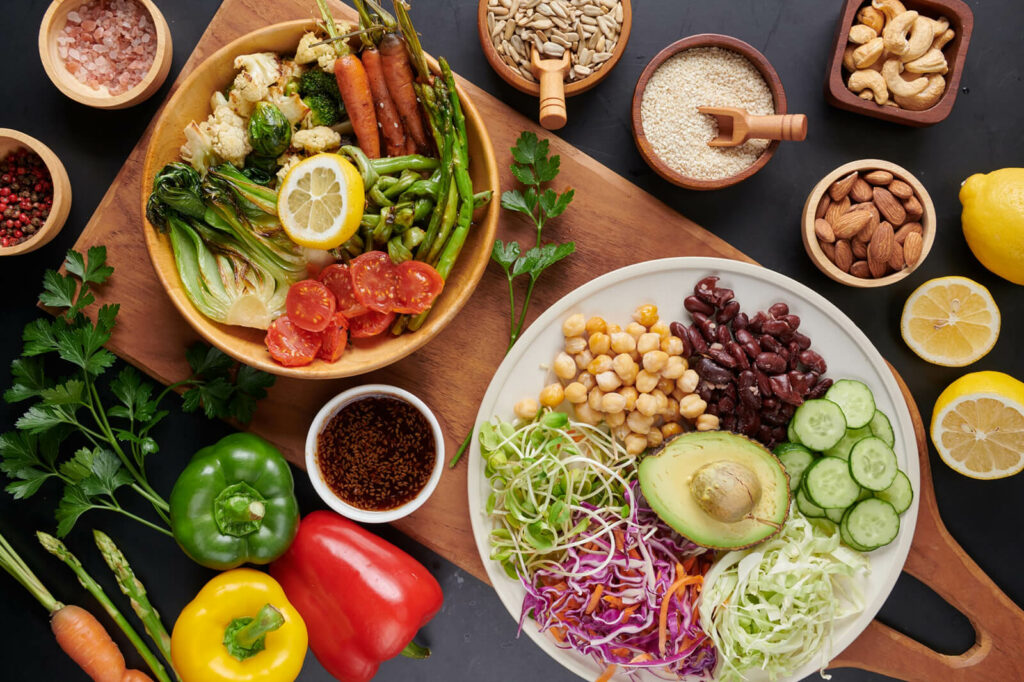
Is Vegan Gluten-Free?
Vegan foods are gluten-free for the most part. It must first be understood that while all gluten-free foods are not vegan, all vegan foods can be gluten-free. This is because a main component of veganism is abstaining from eating animal products, like dairy, eggs, and honey, while gluten-free excludes wheat, barley, and rye products only.
There are many vegan meals that do not contain any wheat or other gluten grains and can be considered to be both vegan and gluten-free. Yet on the flip side, there are plenty of gluten-free products that contain some kind of animal product making them unsuitable for strict vegans who cannot eat any animal related product in order to maintain a fully plant-based diet.
What is the Difference Between a Vegan and a Gluten-Free Diet?
A vegan diet is a plant-based diet in which all animal products, including meat, eggs, and dairy, are eliminated. It also excludes honey and any other foods derived from animals. On the other hand, a gluten-free diet eliminates grains that contain gluten, such as wheat products and rye. Although both diets exclude certain types of food from the diet, their underlying principles are quite different.
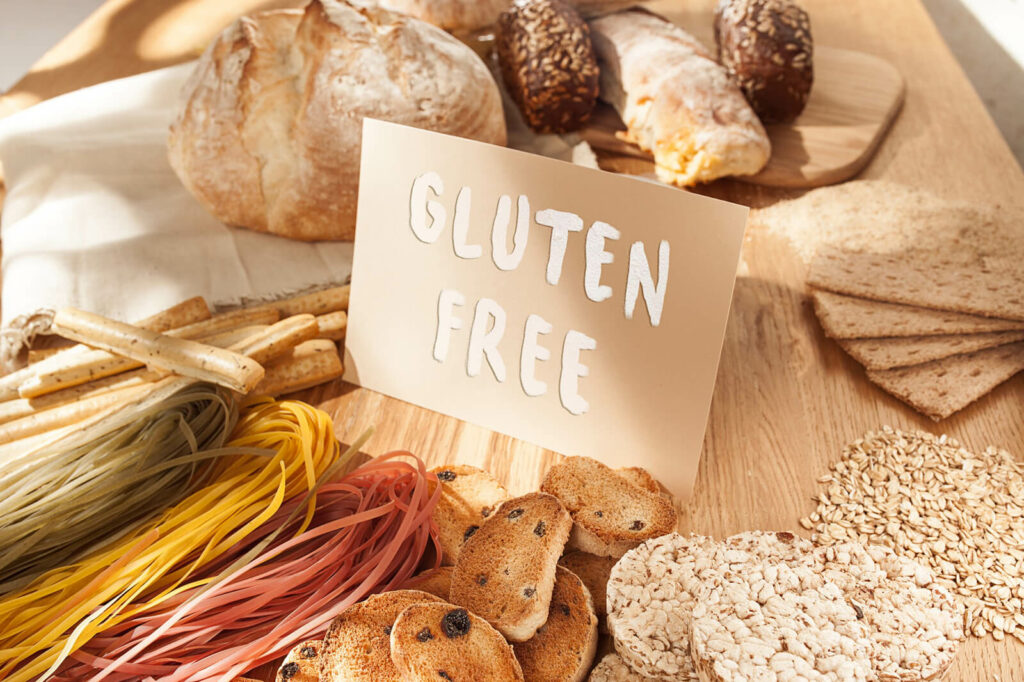
A vegan diet seeks to eliminate all animal sources while a gluten-free diet solely focuses on removing one specific type of food: gluten. Despite these dietary differences, both diets often overlap with certain health benefits in common as many overly processed foods contain both animal products and gluten.
Gluten-Free Grains
- Rice
- Corn (maize)
- Quinoa
- Buckwheat
- Sorghum
- Millet
- Amaranth
- Teff
- Oats (if labeled as gluten-free)
- Wild rice
Gluten-Free Flours
- Almond flour
- Coconut flour
- Chickpea flour (also known as gram flour or besan)
- Rice flour
- Buckwheat flour
- Potato flour
- Tapioca flour (also known as tapioca starch)
- Sorghum flour
- Quinoa flour
- Amaranth flour
- Corn flour (not to be confused with cornmeal, which may contain gluten)
Can You Be a Vegan and Gluten-Free?
It has become increasingly possible to maintain a vegan lifestyle while also avoiding gluten, due to the availability of products that have both requirements. Given the careful selection available for vegans who wish to remain free of gluten, it is indeed possible to find meals that meet both criteria; getting creative with flavors and ingredients is key in order for this way of life to be successfully pursued.
Fruits, vegetables, grains, nuts and dairy substitutes can be combined in an unlimited variety of ways so as to create delicious recipes without compromising on one’s dietary rules or nutritional needs.
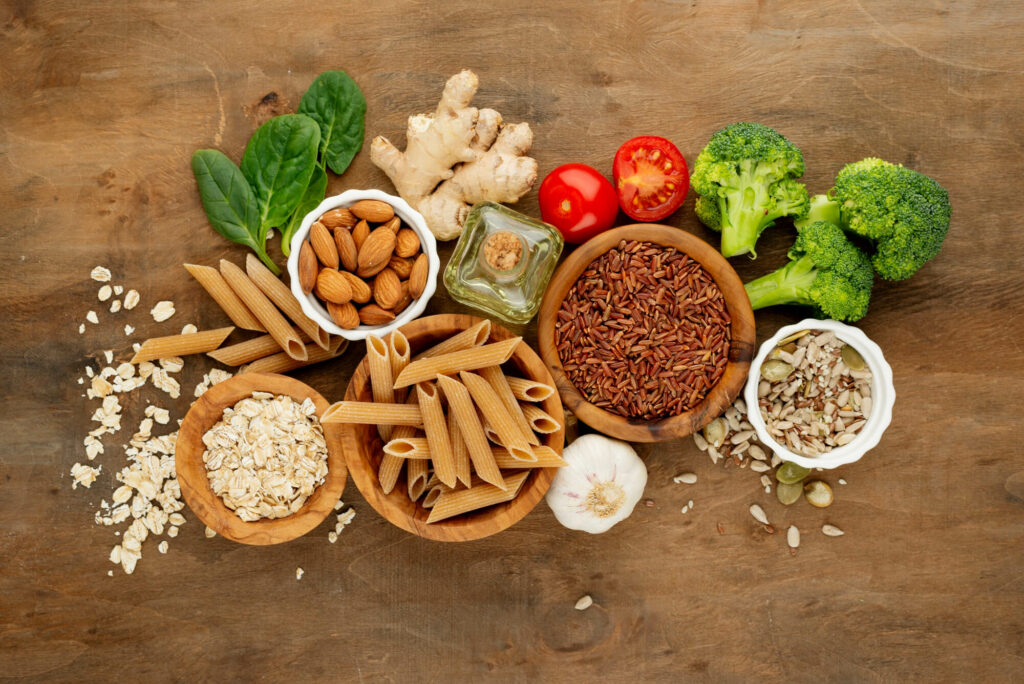
What Does Being Gluten-Free Involve?
Being gluten-free involves several lifestyle changes and can be a big adjustment. It means not eating any food that contains wheat, barley or rye, so it goes beyond simply avoiding bread; many sauces, salad dressings and processed meats have hidden gluten ingredients.
Going gluten-free also applies to food preparation: cross-contamination from regular cutting boards and knives can occur, so avoiding this requires careful attention in the kitchen.
It is possible to find delicious alternatives though; there are plenty of nutritious foods that are naturally gluten-free such as vegetables, fruits, meats, fish and dairy. But most importantly, being gluten-free requires an awareness of the food you choose – taking the time to read labels on products for possible sources of gluten takes effort but is invaluable for maintaining a healthy diet.
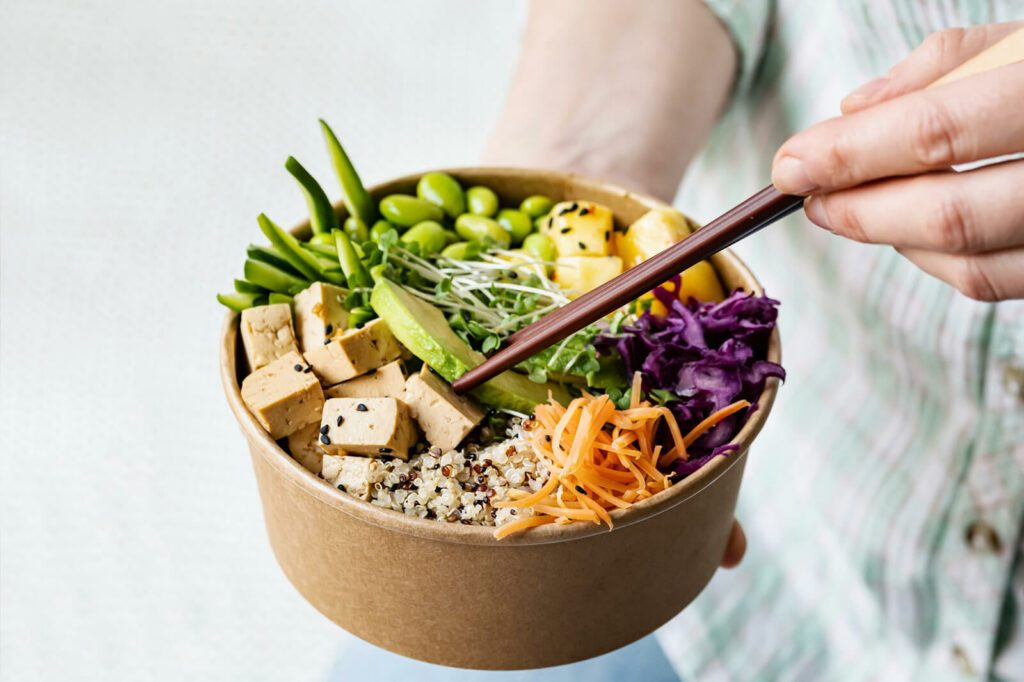
How to Make Vegan Gluten-Free Meals
To make vegan gluten-free meals at home, there are some simple substitutions that can be made to combine healthy ingredients without gluten-based products. Start by replacing wheat flour with almond or coconut flour. This is an easy way to create a wholesome base for your meal.
Other ingredients like oats, quinoa, amaranth and buckwheat groats can also make great side dishes and main entrées. You can also try adding vegetables like cauliflower, sweet potatoes and salads to add texture and flavor. You can visit your local grocery store and find vegan cheese alternatives.
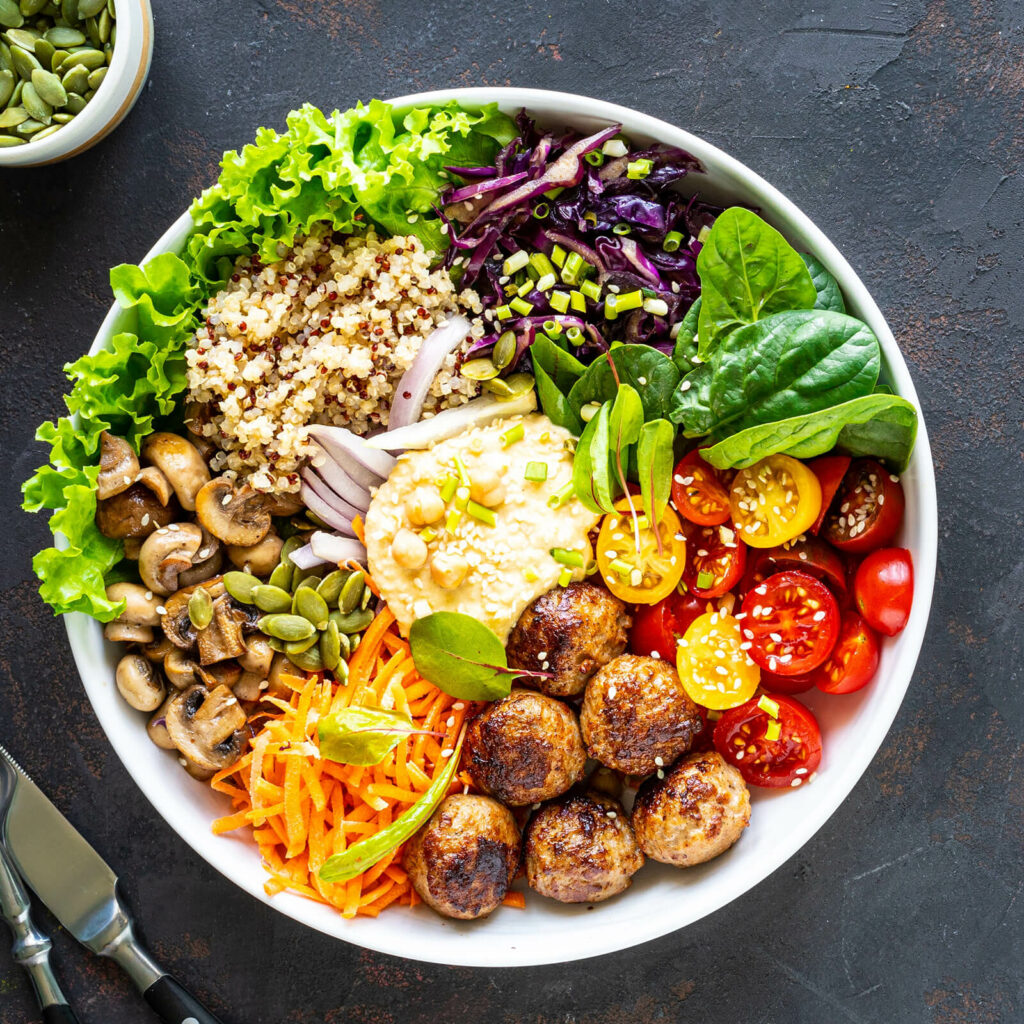
Health Benefits of a Vegan Gluten-Free Diet
An increasing number of people are choosing a vegan gluten-free diet for multiple health benefits. Caring for our bodies by embracing healthy eating habits is an important step in promoting longevity. Here are some health benefits of a vegan gluten free diet.
Lowers Inflammation
The primary benefit being improved digestive health and the reduction of inflammation. Inflammation is linked to a multitude of chronic diseases, such as cancer, type 2 diabetes and heart disease. By following this diet, unhealthy processed foods are avoided and replaced with healthier plant-based alternatives that are free of gluten.
Eliminating these trigger foods can lead to significant improvements in physical well-being, as research has shown that whole food plant-based diets can reduce chronic inflammation and symptoms associated with many common diseases.
Improves Skin Health
Eating a vegan gluten-free diet isn’t only good for your overall health, it can also drastically improve skin health. By eliminating gluten from their diet, those with intolerances reduce inflammation involving the gut and skin. Veganism removes animal products, which are often high in fat and cholesterol – two factors that can lead to acne.
Furthermore, many vegan foods contain antioxidants like vitamins A, C and E to protect against cell damage caused by environmental toxins. Moreover, fiber-rich vegan foods optimize digestion which is key for balanced hormones and optimized skin health. Therefore, going vegan gluten-free can dramatically improve the appearance of our skin in addition to other countless benefits.
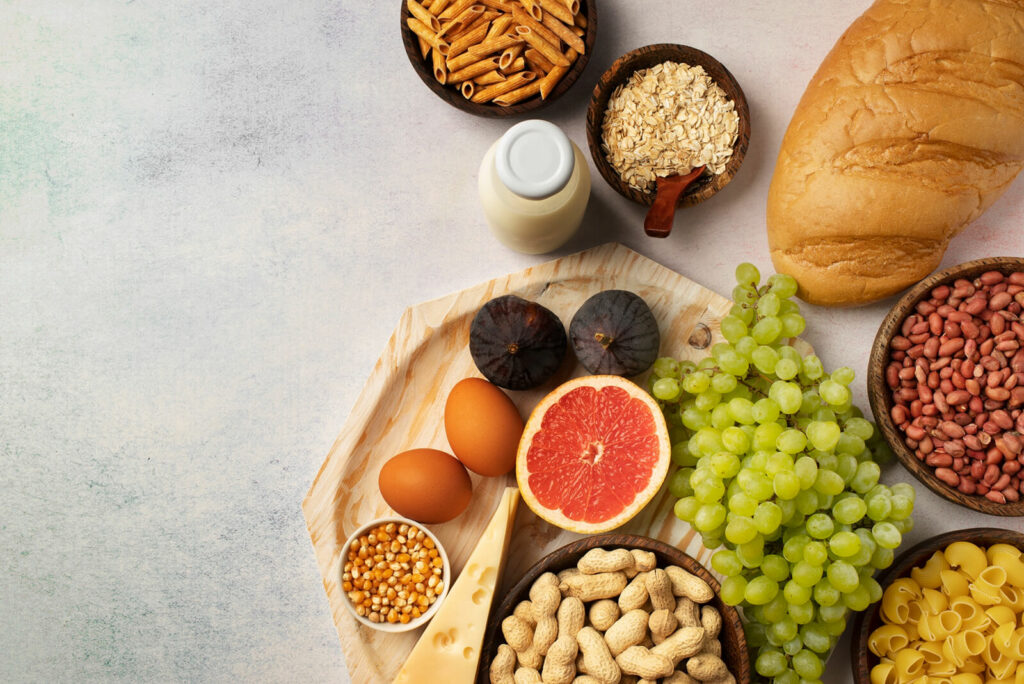
Promotes Bone Health
A vegan, gluten-free diet can promote bone health by providing important and safe sources of calcium. Studies have suggested that individuals on the vegan and gluten-free diets report improved bone mineralization compared to those not following this lifestyle. Such foods may include fortified oat or rice milk, collard greens, almonds, and other lesser-known sources of calcium such as chia seeds and tahini.
Reduces Joint Pain
Another amazing benefit is the reduction of joint pain. Studies have shown that eliminating gluten and animal-based foods may reduce joint inflammation and ameliorate pain caused by conditions like osteoarthritis and rheumatoid arthritis.
Reducing the burden on the digestive system caused by consuming animal-based proteins also helps to reduce pain levels. Eating a plant-based, gluten free diet is both healthy and effective in reducing joint fatigue, especially when combined with regular exercise and movement.
Not only can it improve overall joint health, but it often has the added benefit of increased energy levels and improved immunity.
Improves Immunity
Studies have indicated that people who choose such a diet are less likely to suffer from inflammation of the digestive tract, which can be a major trigger of auto-immune diseases.
Eating foods that are naturally dairy and wheat/gluten-free also reduces a person’s exposure to allergenic materials and other potentially dangerous ingredients found in processed products.
Changing your diet to exclude processed foods and animal products not only allows the body time to heal but provides access to fresh fruits and vegetables high in vitamins, minerals, and essential nutrients like fiber that support immune health. Following such a diet can lead to improved digestion, natural energy, and prevent illness by helping the body better recognize harmful invaders that might otherwise cause an inflammation reaction or long-term medical issues.
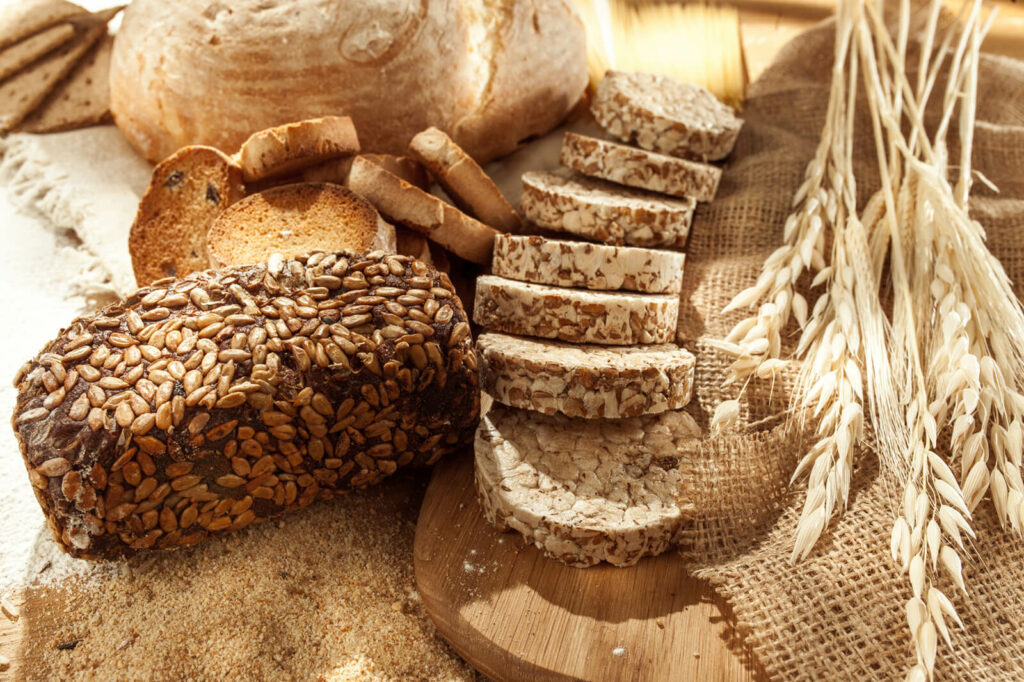
Promotes Weight Loss
Eating a vegan gluten free diet also promotes weight loss. This is because foods like whole wheat breads and pastas, which often contain gluten, are absent from the diet. By removing these items from what you eat, the amount of calories that you consume on a daily basis will be lowered significantly.
Additionally, since vegan diets involve eating mostly plant-based items such as fruits and vegetables, your calorie intake ratio of healthy to unhealthy food will be far higher. This combination of avoiding gluten-laden foods and having a high quantity of healthy food makes it much easier to take off excess weight without relying on extreme measures like crash dieting or fasting.
Gluten free veganism is an increasingly popular lifestyle, and with good reason. Not only does this approach open up delicious and new dietary options, but it also eliminates health risks associated with the negative ingredients found in gluten-containing food items. Although it may be difficult to find ready-made vegan options verified as gluten-free, many simple recipes can easily be modified to cater specifically to one’s needs.
Show sources ⌄
Watzl B. Anti-inflammatory effects of plant-based foods and of their constituents. Int J Vitam Nutr Res. 2008 Dec;78(6):293-8. doi: 10.1024/0300-9831.78.6.293. PMID: 19685439.
Menzel J, Abraham K, Stangl GI, Ueland PM, Obeid R, Schulze MB, Herter-Aeberli I, Schwerdtle T, Weikert C. Vegan Diet and Bone Health-Results from the Cross-Sectional RBVD Study. Nutrients. 2021 Feb 21;13(2):685. doi: 10.3390/nu13020685. PMID: 33669942; PMCID: PMC7924854.
Alwarith J, Kahleova H, Rembert E, Yonas W, Dort S, Calcagno M, Burgess N, Crosby L, Barnard ND. Nutrition Interventions in Rheumatoid Arthritis: The Potential Use of Plant-Based Diets. A Review. Front Nutr. 2019 Sep 10;6:141. doi: 10.3389/fnut.2019.00141. PMID: 31552259; PMCID: PMC6746966.
Schreiner P, Yilmaz B, Rossel JB, Franc Y, Misselwitz B, Scharl M, Zeitz J, Frei P, Greuter T, Vavricka SR, Pittet V, Siebenhüner A, Juillerat P, von Känel R, Macpherson AJ, Rogler G, Biedermann L; Swiss IBD Cohort Study Group. Vegetarian or gluten-free diets in patients with inflammatory bowel disease are associated with lower psychological well-being and a different gut microbiota, but no beneficial effects on the course of the disease. United European Gastroenterol J. 2019 Jul;7(6):767-781. doi: 10.1177/2050640619841249. Epub 2019 Mar 27. PMID: 31316781; PMCID: PMC6620875.
